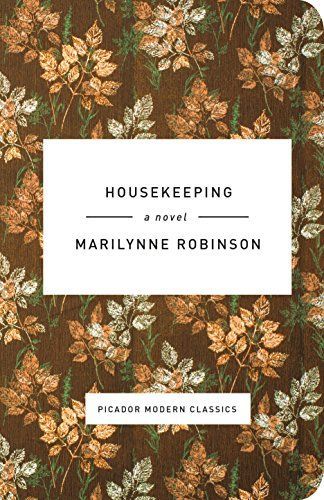
Housekeeping A Novel
Newly reissued as a Picador Modern Classic, Marilynne Robinson's brilliant, PEN/Hemingway Award-winning first novel Housekeeping is the story of Ruth and her younger sister, Lucille, who grow up haphazardly, first under the care of their competent grandmother, then of two comically bumbling great-aunts, and finally of Sylvie, the eccentric and remote sister of their dead mother. The family house is in the small town of Fingerbone on a glacial lake in the Far West, the same lake where their grandfather died in a spectacular train wreck and their mother drove off a cliff to her death. It is a town "chastened by an outsized landscape and extravagant weather, and chastened again by an awareness that the whole of human history had occurred elsewhere." Ruth and Lucille's struggle toward adulthood beautifully illuminates the price of loss and survival, and the dangerous and deep undertow of transience. For more than twenty years, Picador has been producing beautifully packaged literary fiction and nonfiction books from Manhattan's Flatiron Building. Our Twentieth Anniversary Modern Classics line pairs iconic books with a design that's both small enough to fit in your pocket and unique enough to stand out on your bookshelf.
Reviews
John Vetter@johnvetter
Cody Degen@codydegen
Lamia Hajani@lamafoyomama
Jeremy Wang@stratified_jeremy
alex @tomatosoup
Jeremy Boyd@jboydsplit
Donald@riversofeurope
Christopher McCaffery@cmccafe
Trevor Berrett@mookse
Laura Springall@bookishlifeoflaura
Daryl Houston@dllh
Sameer Vasta@vasta
Gary Homewood@GaryHomewood
Yasemin@yerdem
A kabel @me0wme0w
Charlie Beckerman@chozzles
Gabe Cortez@gabegortez
Linda LaSalle@harpo
Isabella Agostino@bellaray
Sarah Sammis@pussreboots
Anna @berthamason
Hannah Swithinbank@hannahswiv
Pierke Bosschieter@pierke
Aubrey Hicks@aubreyhi
Highlights
Linda LaSalle@harpo